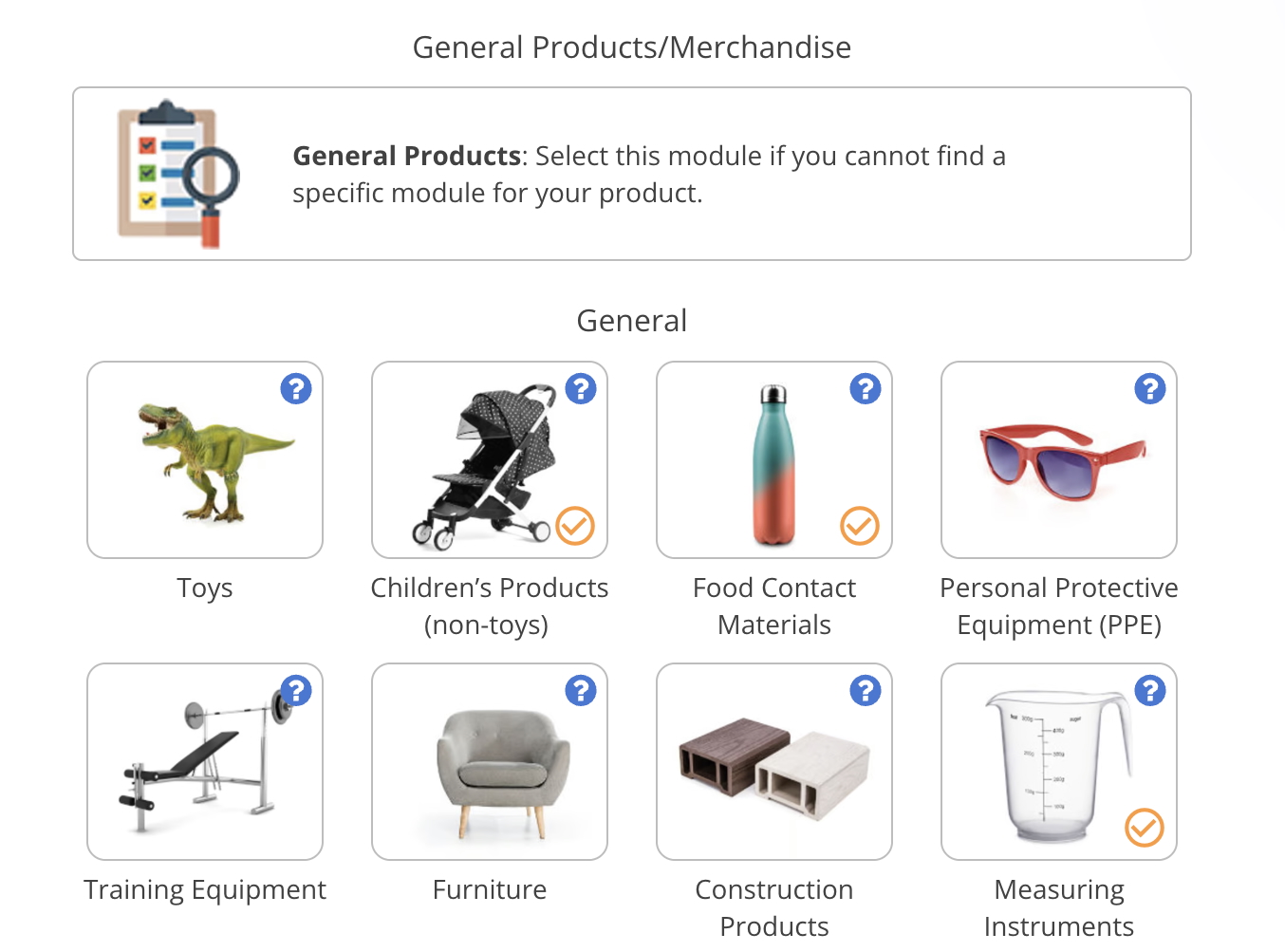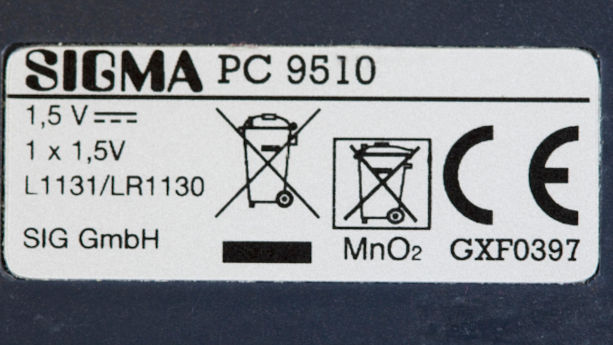
The European Union mandates the use of the CE marking for many product categories such as electronics, toys, medical devices, and personal protective equipment. That being said, some countries outside the EU, including Turkey and the United Kingdom, can accept the CE marking for certain products.
Other countries recognise certain aspects of the CE marking process – such as EN standards.
In this guide, we explain what you need to know about the acceptance concerning CE-marked products and EN standards in the United Kingdom, Turkey, Israel, Switzerland, Singapore, and other countries.
Content Overview

FREE CONSULTATION CALL (30 MIN)
 Ask questions about compliance requirements
Ask questions about compliance requirements Countries/markets:
Countries/markets:
 Learn how we can help your business
Learn how we can help your business
You will speak with:Ivan Malloci or John Vinod Khiatani
European Union
The EU requires the use of the CE marking for products regulated by one or more CE marking Directives or Regulations. Currently, the EU has more than 20 CE marking directives or regulations that cover consumer and industrial products, such as:
Importers and manufacturers must complete the necessary steps to ensure product compliance before applying the CE marking to their products or product packaging. This includes the following:
a. Ensure that the product conforms to relevant technical requirements, for example, by complying with relevant harmonised standards.
b. Determine whether a notified body is needed.
c. Perform necessary lab testing and obtain a valid test report.
d. Prepare the relevant technical documentation.
e. Prepare the Declaration of Conformity (DoC).
f. Ensure the product and packaging include the correct marks, labelling information, and warnings.
g. Provide user instructions.
United Kingdom
Post-Brexit, the UK has mandated the use of the UK Conformity Assessed (UKCA) marking to indicate a product’s compliance with most UK regulations for which CE marking was previously required.
Until 31 December 2024, the UK government allows importers and manufacturers to choose between using either the CE marking or the UKCA marking when placing products on the UK market. It also intends to establish legislation to indefinitely recognise the CE marking beyond 31 December 2024.
Here is a list of products for which you can choose to use the CE marking in the UK:
- Electrical and electronic products, including radio equipment
- Toys
- Personal protective equipment (PPE)
- Machinery
- Watercraft
- Simple pressure vessels
- Non-automatic weighing instruments
- Measuring instruments
- Measuring container bottles
- Pyrotechnics
- Lifts
- Equipment for potentially explosive atmospheres (UKEX)
- Pressure equipment
- Gas appliances
Turkey
Even though Turkey is not an EU member state, it adopted and made mandatory the use of the CE marking framework, via the ‘Regulation on the “CE” Marking’, for products that require CE marking in the EU.
The regulation specifies the conformity assessment and obligations of each party concerning the products subject to the CE marking framework.
Importers and manufacturers should comply with requirements such as:
- Comply with the requirements of relevant “harmonised standard” adopted by a European standardisation body
- Draw up technical documentation
- Carry out conformity assessment procedure
- Draw up a DoC
- Affix the CE marking and instruction label to the product
- Keep the technical documentation and the DoC for a period specified in the relevant technical regulation
Switzerland
Switzerland has signed a Mutual Recognition Agreement (MRA) with the EU, which covers the harmonisation of the Swiss and the EU requirements for products under the agreement.
The MRA EU covers product categories such as:
- Machinery
- Medical devices
- Electrical equipment
- Construction products
- Lifts
- Biocidal products
This means that for products covered by the MRA, importers and manufacturers would only need recognised conformity assessment bodies to perform one conformity assessment per EU or Swiss technical regulations, to place their products in both the EU and Swiss markets.
Additionally, if the relevant Swiss regulation requires a conformity mark, the CE marking can be used instead.
As an example, importers and manufacturers of radio devices are required to either comply with the Swiss conformity mark (CH Mark) framework or with the CE marking framework, according to the Radio Equipment Directive requirements.
However, for products where the Swiss and EU legislation are not harmonised, such as hot water boilers or measuring instruments, the products must be manufactured according to Swiss requirements when being imported or manufactured in Switzerland.
Norway
Even though Norway is not a member state of the European Union, it is a European Free Trade Association (EFTA) member state. As such, Norway follows the requirements of the CE marking framework.
This means companies that are importing or manufacturing products that are covered by CE marking directives or regulations in Norway, must comply with the relevant EU requirements.
Iceland
Iceland is not a member of the European Union. It is an EFTA member state, just like Norway. Similarly, products covered by one or more of the CE marking directives or regulations must comply with relevant CE marking requirements.
Liechtenstein
Liechtenstein is an EFTA member state as well. As such, it requires importers and manufacturers to comply with all relevant CE marking regulations and requirements, before placing the products in the market.
Israel
The EU has signed Mutual Recognition Agreements (MRAs) with Israel. The purpose of the MRAs is to encourage the free trade of goods, facilitate market access, and harmonisation of standards between the EU and Israel.
The MRAs between Israel and the EU establish conditions under which both parties should recognise the conformity assessment results, including the testing or certification performed by the EU or Israeli-designated conformity assessment bodies (CABs).
Currently, the MRAs between Israel and the EU cover products such as:
- Converters for the reception of television broadcasts
- Video streamers
- Cosmetics
- Industrial chemicals
- Medicinal products
- Food additives
Israel has published the Wireless Telegraph Regulations (Certificates of Compliance) Amendment 5722-2022 which, according to iCertify, allows test reports concerning EU standards relevant to radio equipment, and other documentation concerning the CE marking conformity assessment (e.g. technical documentation, DoC) to be used for the Israel Type Approval.
Note that we couldn’t confirm this information as the text of the regulation is not available in English.
Republic of North Macedonia
The Republic of North Macedonia is currently an EU candidate country, which means the European Commission is still yet to confirm its membership status.
As such, the country must harmonise its technical regulations with the EU’s legislation, norms, and standards, before becoming a member state of the EU, including making CE marking a compulsory requirement, when relevant.
We couldn’t find an official source in English requiring products to carry the CE marking before being placed into the Republic of North Macedonia. However, according to DEKRA, relevant parties must provide a CE marking that indicates their product’s compliance with requirements regarding its:
- Electrical safety
- Electromagnetic compatibility
- Energy efficiency
Serbia
Serbia is not an EU member state, but it has adopted many EU regulations. Currently, Serbia adopts CE marking directives and regulations for specific categories of products, including:
- Electrical appliances
- Toys
- Machinery
- Personal protective equipment
- Pressure equipment
- Lifts
- Measuring instruments
This means that these products must comply with the requirements of the relevant CE marking directives and regulations.
Montenegro
Montenegro is not a member of the European Union and it has its own standardisation system. Currently, Montenegro allows electronic devices compliant with the EMC Directive and the Radio Equipment Directive and bearing the CE marking to be imported into Montenegro.
Additional requirements for importers or manufacturers include:
a. Products must have a user manual written in the Montenegrin language.
b. Products must contain a warning or safety statement in the Montenegrin language, when relevant.
Singapore
Enterprise Singapore’s approved List of Standards and Certificates includes the “CE mark”. However, we have no evidence that you can import or sell CE-marked goods in Singapore unless they also comply with local regulations.
Having said that, the Consumer Protection (Consumer Goods Safety Requirements) Regulations (CGSR) require compliance with EN standards, ASTM standards, ISO standards, or IEC standards, for some categories of products.
For example, toys should comply with one of the following standards:
- EN 71
- ASTM F963
- ISO 8124
Thus, if your product is already compliant with EN 71 standards, which are harmonised under the Toy Safety Directive in the EU, you can use relevant test reports to demonstrate product compliance with Singaporean regulations as well.
Note, however, that there may also be additional requirements (e.g. substance restrictions).
Australia
Australia has an independent requirement for approval certification. Therefore, the CE mark cannot be used as a basis for compliance.
However, the test methods of many AS/NZS standards are similar to the test methods set by equivalent EN standards. In practice, this means that if you have valid test reports for EN standards, you might just need to do partial testing in order to comply with AU/NZ standards.
Also, Australia’s medicine and therapeutic regulatory agency, the Therapeutic Goods Administration (TGA) accepts CE conformity assessment and documentation for medical devices under the EU Medical Devices Regulation (MDR).
Canada
Canada signed a Comprehensive Economic and Trade Agreement (CETA) with the EU in 2017 that facilitates free trade and market entry for both markets. This does not mean that Canada recognises the CE marking.
However, Canada’s regulatory bodies might accept EN standards as the testing standards for certain products.
For instance, Health Canada proposed to amend the Toys Regulations under the Canada Consumer Product Safety Act by adopting several requirements from the EN 71-3 standard regarding migration limit values of certain elements.
With that being said, manufacturers or importers should still conform to the general requirements set out by Canadian regulations, including labelling, documentation, and testing requirements.
United States
The CE mark is not recognized in the United States. Products that are sold in the United States have to comply with relevant federal or state-enforced standards and regulations, such as CPSIA for children’s products or FCC 47 CFR Part 15 for electronics.
The closest we get to recognition in the US is that some states have adopted RoHS, but only in terms of substance restrictions. The CE mark has no validity or status in the US.

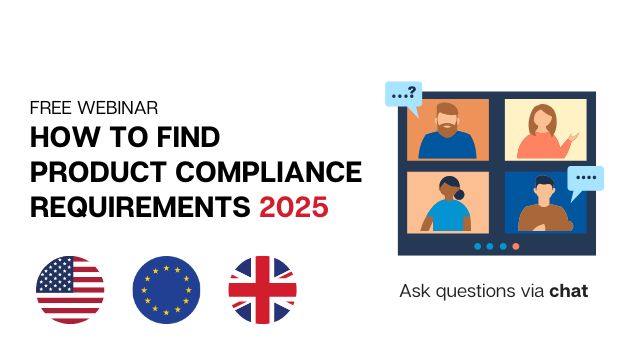
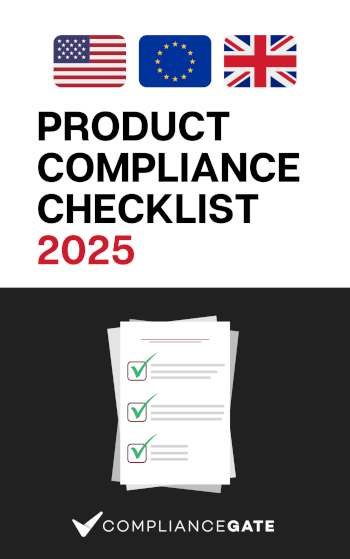




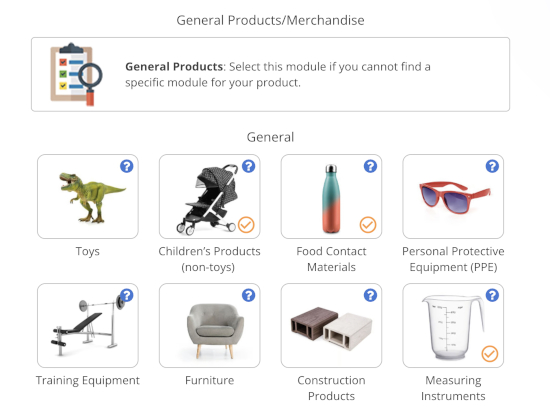






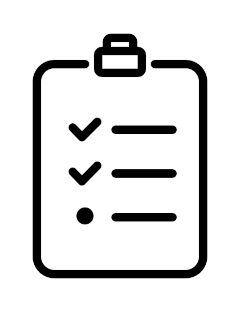


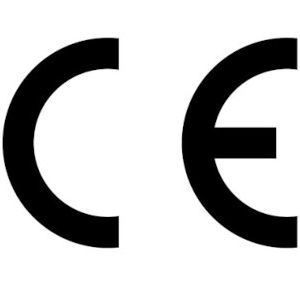




.png)
.png)
.png)
